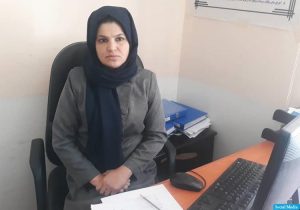We Have not Yet Heard Any Promising News

Although more than a month has passed since the start of the peace talks, the issues at stake have not yet shifted. This issue has not only raised the concerns of ordinary citizens, but also some governmental and non-governmental officials have expressed disappointment with the peace progress.
In an interview with the Civil Society and Human Rights Network (hereafter referred to as “Network”) Oranos Atefi said that it has been a long time since the talks beginning, but there is no hope for it, and many people increasingly become distrustful of the peace process.
Network: Are you optimistic about the peace process?
Atefi: We have not heard any promising news of the peace progress and the Taliban’s resistance to change makes it worse.
Network: Given the history of the Taliban, especially with regards to women, can we expect positive outcome from peace process?
Atefi: This dialogue will be fruitful if the United Nations and other countries involved in the Afghan peace process exert the necessary pressure. Otherwise, there is no hope for the outcome of this process. Since the beginning of the negotiations, the security situation has deteriorated and we are witnessing the killing of military and civilians every day; and almost all provinces are insecure. There is no hope for peace unless the international community, the US government and pro-Taliban countries intervene.
Network: Do you think the presence of women in peace talks will affect the Taliban’s view of them?
Atefi: The presence of three women representing half of the country’s population in these negotiations is not enough. They may not be able to recount all the problems of women. Another important point is that the representatives of the victims of the war should also have been present at the negotiations, and the female members of the negotiating team may not be able to express the grief of a mother who lost two or three children in one day. It would have been better if three or four women who are victims of war had been given the opportunity to speak in peace talks.
Network: What issues do women most want their representatives to raise in peace talks?
Atefi: The most important issue for women is the protection of the rights to education, employment and participation in political and cultural gatherings. All of these are the rights that religion granted for women. Unfortunately, the Taliban did not respect women’s rights during their rule, even in relation to obtaining rights such as inheritance, for which, like other rights, religion has provided. We all know that at the time of the advent of Islam, women worked in various fields, including politics and business. Afghan women also want to have access all their rights. We want laws related to women, including the law on the prevention of violence, the law and the regulation of support centers, and the UN resolution 1325 should not be ignored. Although women have never been involved in cause or killings in war but they have always made the most sacrifices, and ignoring their rights is not acceptable at all.
Network: Do you think it is acceptable to impose restrictions on women’s rights in order to reach a peace agreement?
Atefi: We need to know what these restrictions mean. For example, if the purpose of the covering is in accordance with the Sharia, it is unacceptable to anyone. But if it means deprivation of the right to education and work or the right to participation in political processes, it is not acceptable to us.
Network: In general, how do you think the Taliban presence in power will affect the activities of women and civil society?
Atefi: The Taliban do not believe in civil society and women’s rights, and the sacrifices of the Afghan people in these areas are of no value to them. Our demand is that in case of signing a peace agreement, they should guarantee their commitments. The international community must guarantee these commitments to make sure that Afghanistan does not relapse to the past.
According to Ms. Atefi, hopes for peace have diminished since the negotiations’ beginning and the Taliban attacks intensified. She added that the main concern is that if the international community and other countries do not cooperate with the Afghan government in this process, the country will face another crisis.